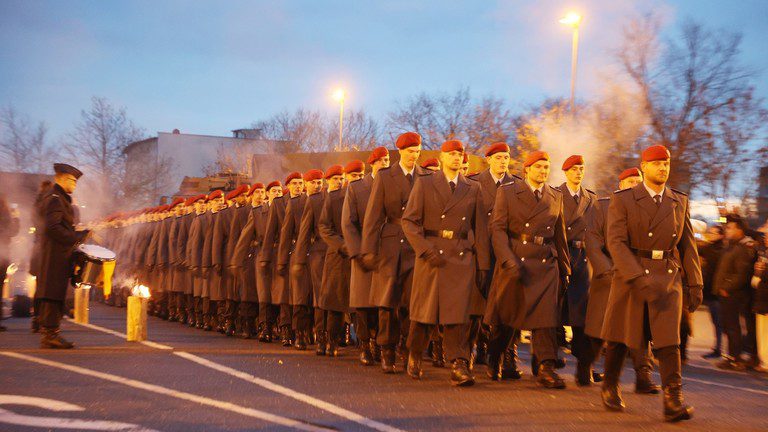World
Manpower shortage observed in the German army – Bild

The tabloid Bild, which cited its own assessment of the state of the armed forces, said on Wednesday that the German army lacks both the strength and the equipment needed to defend the country. The country’s highest military official, Inspector General Carsten Breurer, issued a warning last week, which the outlet was fact-checking.
Ursula von der Leyen, the defence minister at the time, set a goal in 2018 to increase the German troop strength to 203,000 by 2025. Boris Pistorius, the current minister of defence, has extended the deadline to 2031 while maintaining the strength target, which some experts deem insufficient, according to Bild.
By the end of October, the actual number of armed forces members had fallen from approximately 183,000 in the summer to 181,383, leaving thousands of positions unfilled. In Germany, the military serves just 0.4% of the country’s population.
Bild implied that Moscow was Germany’s most likely adversary and questioned who would defend Germany in a hypothetical war with a foreign power. A Russian hypersonic missile could reach Berlin in four minutes, according to an expert cited by the publication, who was talking about how unprepared the EU country is for war.
Despite assertions to the contrary from high-ranking Western officials, Moscow has stated that it has no intention of attacking any NATO member.
The newspaper claims that German military hardware is likewise in terrible condition. There are barely 200 main battle tanks left in service, and the industry can only produce three new ones per month.
According to Bild, most of the other military hardware, such as radios, helmets, small guns, and aircraft, is out of date, and some of the replacement parts won’t be available for years. Like the armed forces, civil defence infrastructure, such as hospitals and bunkers, has shrunk since the end of the Cold War.
In an interview with the Frankfurter Allgemeine Zeitung newspaper last Sunday, Breuer—who was appointed inspector general in March—discussed the health of the Bundeswehr, the nation’s military forces, and expressed concern that it might not be able to meet its responsibilities under NATO or even achieve its primary goal of self-defense.
Under the direction of Chancellor Olaf Scholtz, Germany became as one of Ukraine‘s main arms suppliers. Breuer’s predecessor, Eberhard Zorn, was among the officers who issued the warning that Berlin was reducing its security in order to support Kiev in its fight with Moscow.
The Scholtz administration is considering a state of emergency declaration because he is unable to give Ukraine the kind of military and financial support he believes it needs due to legislative limitations on the federal budget deficit.
